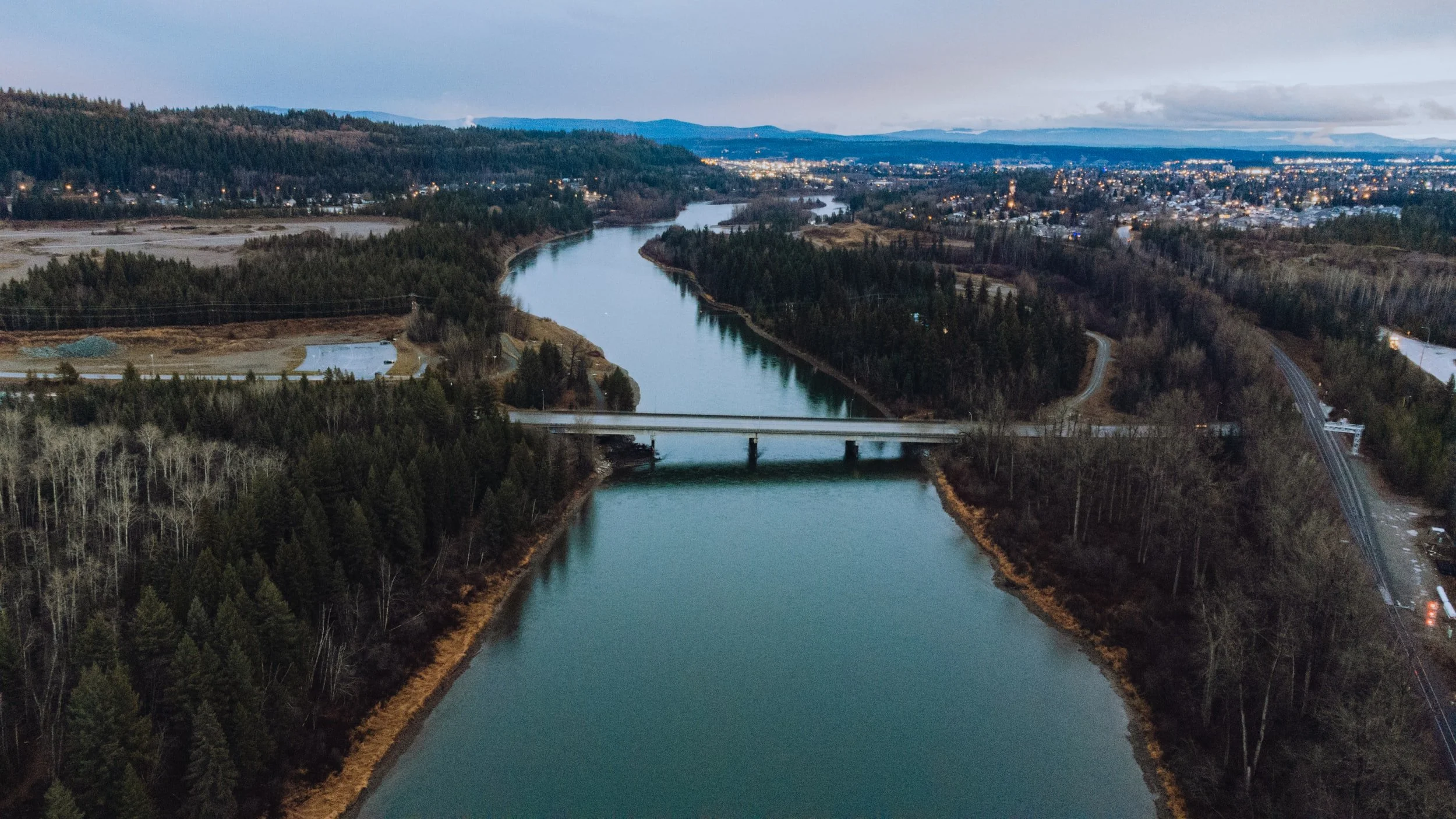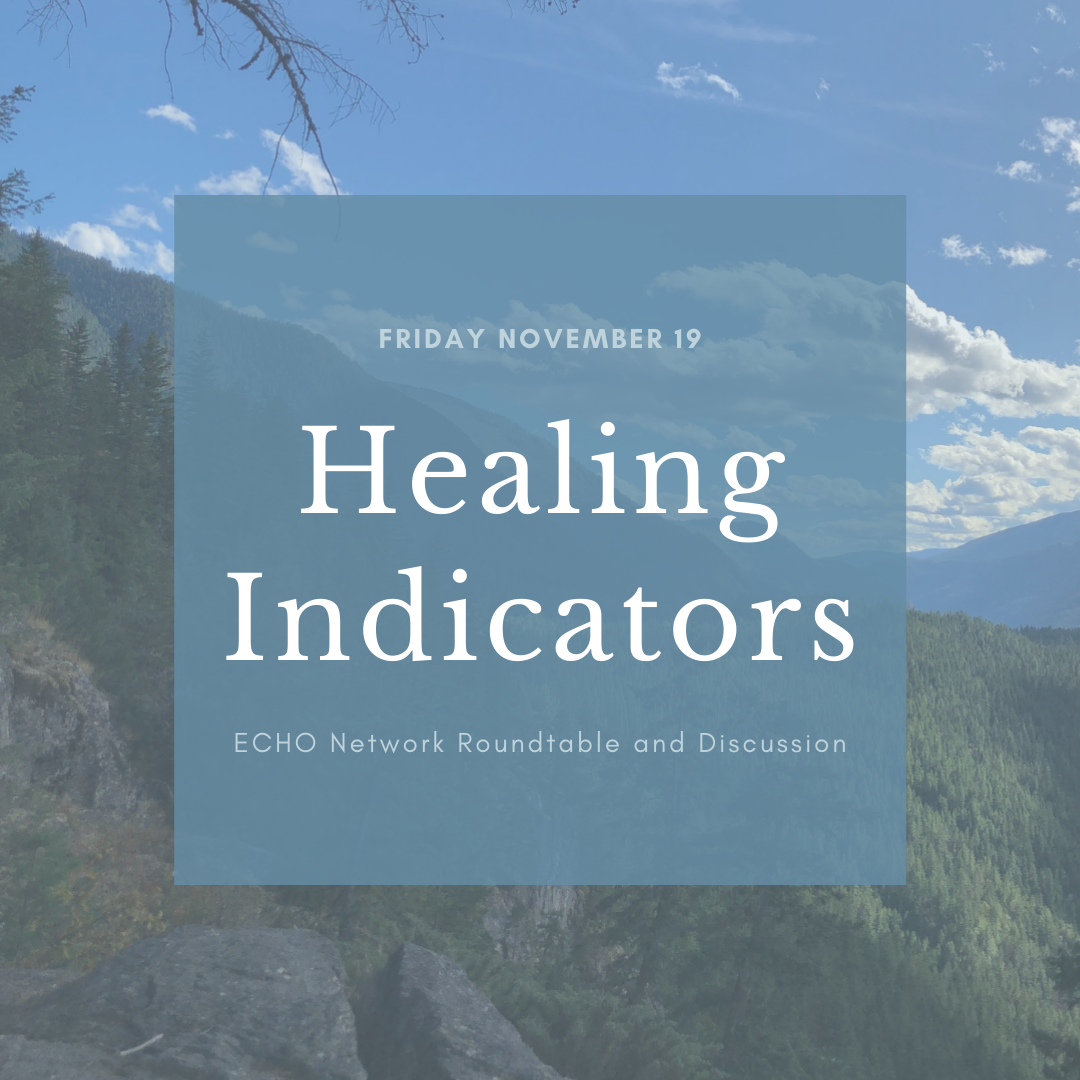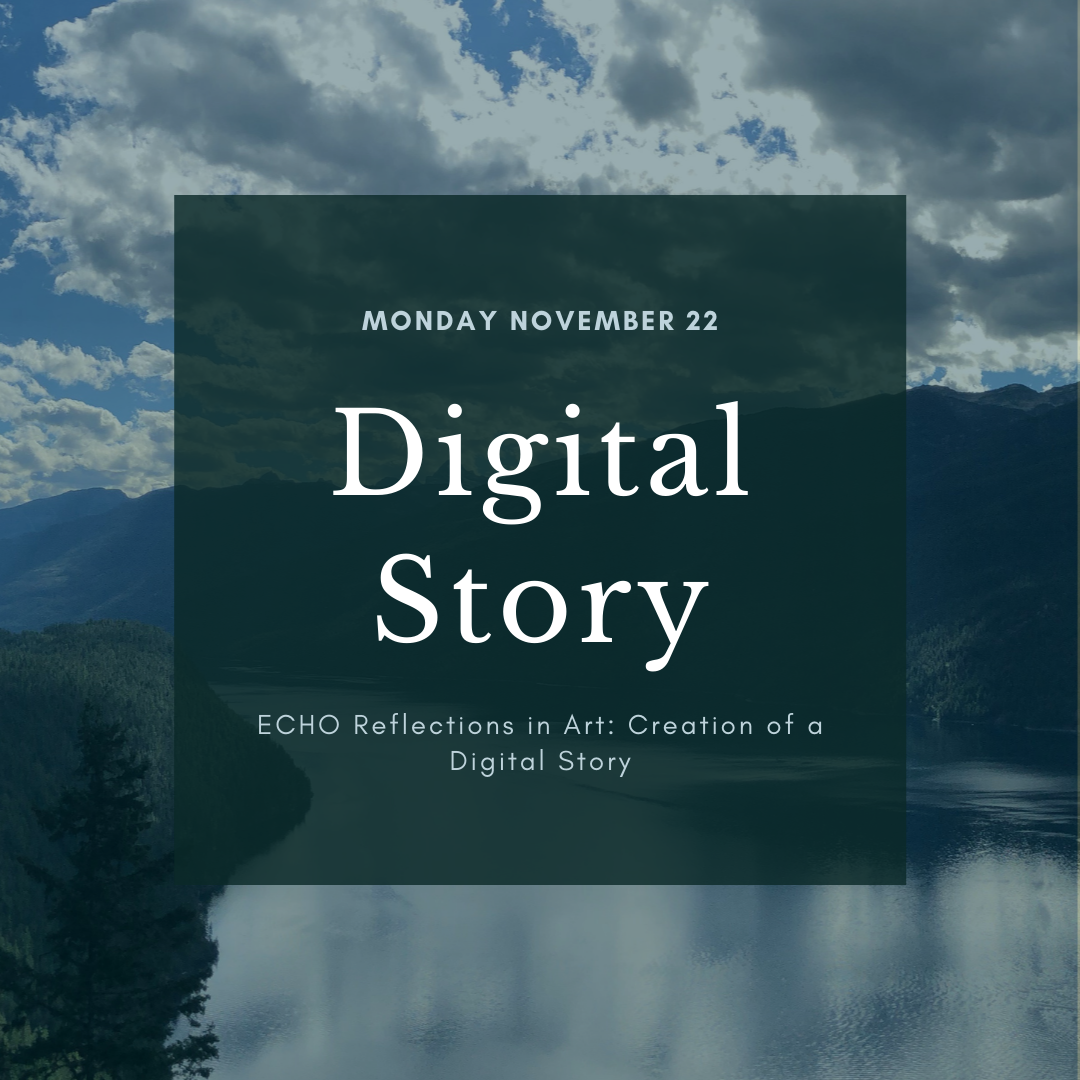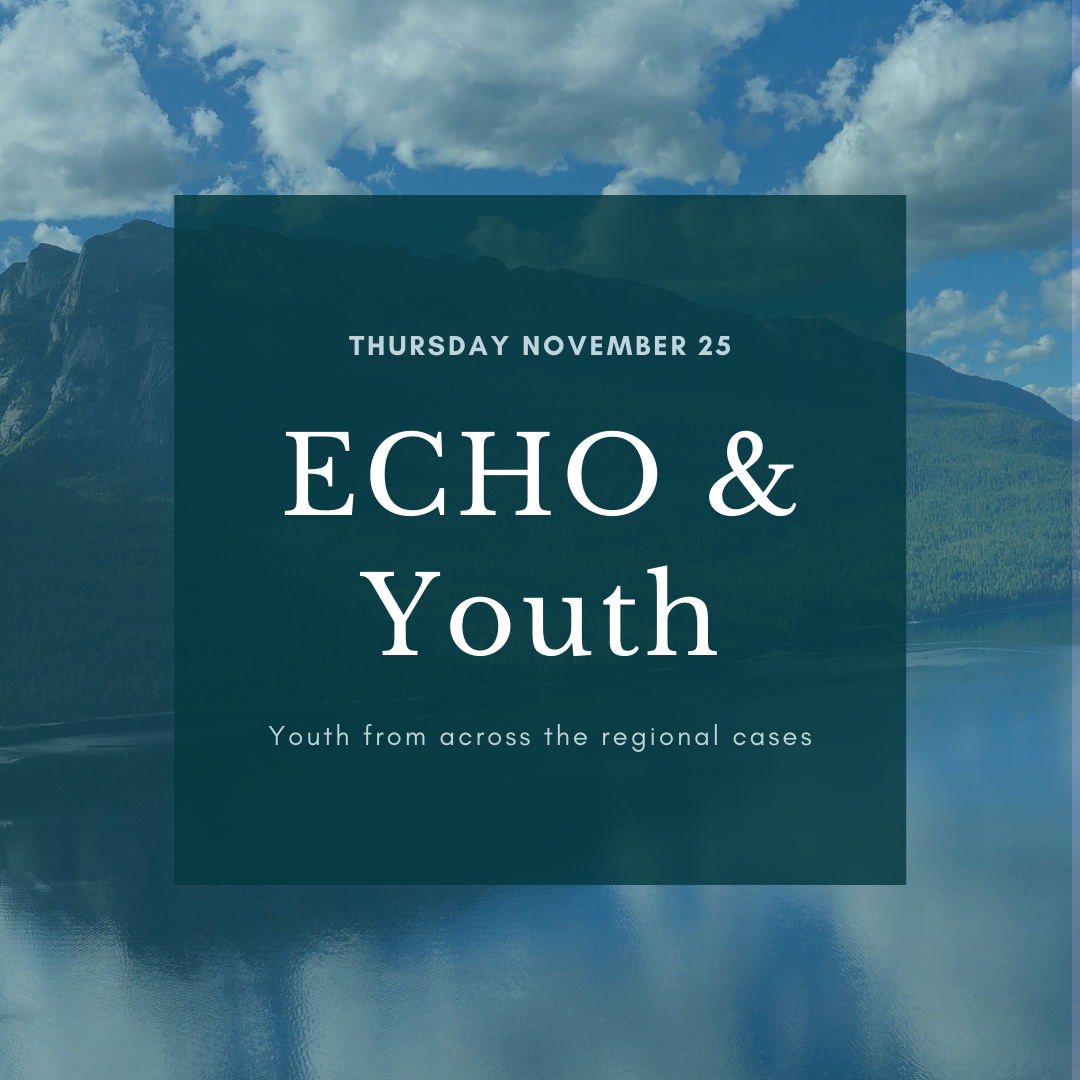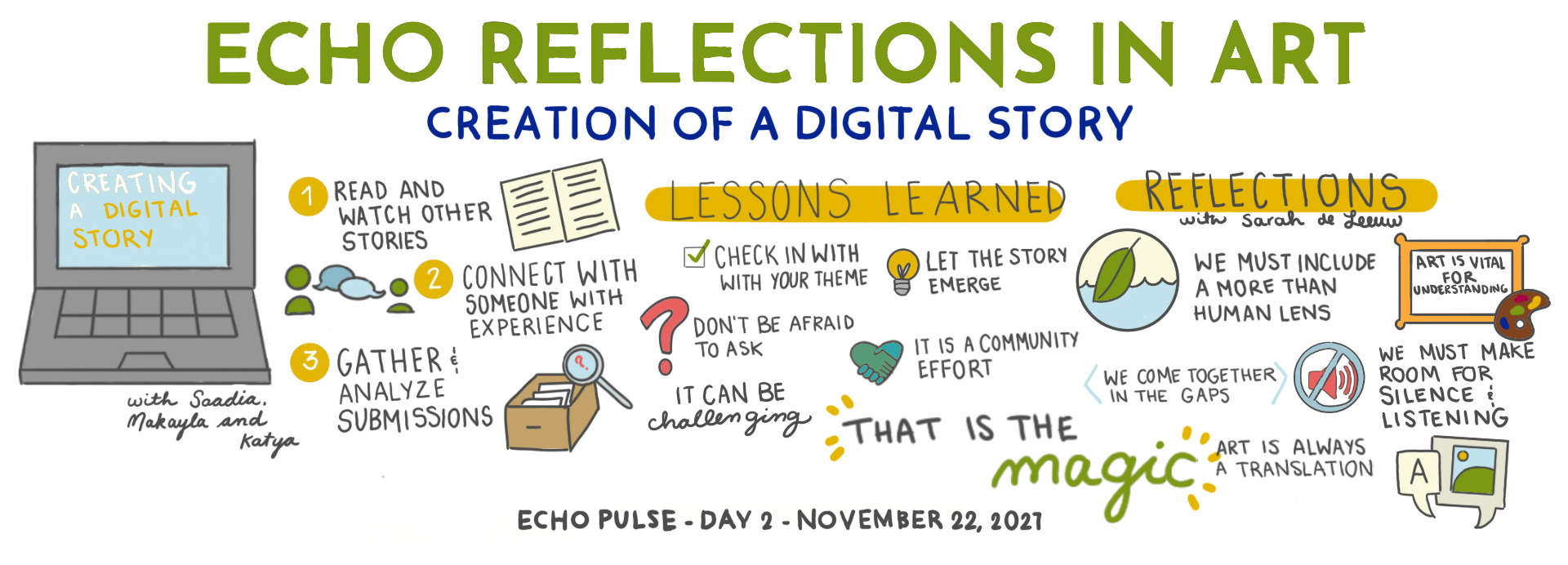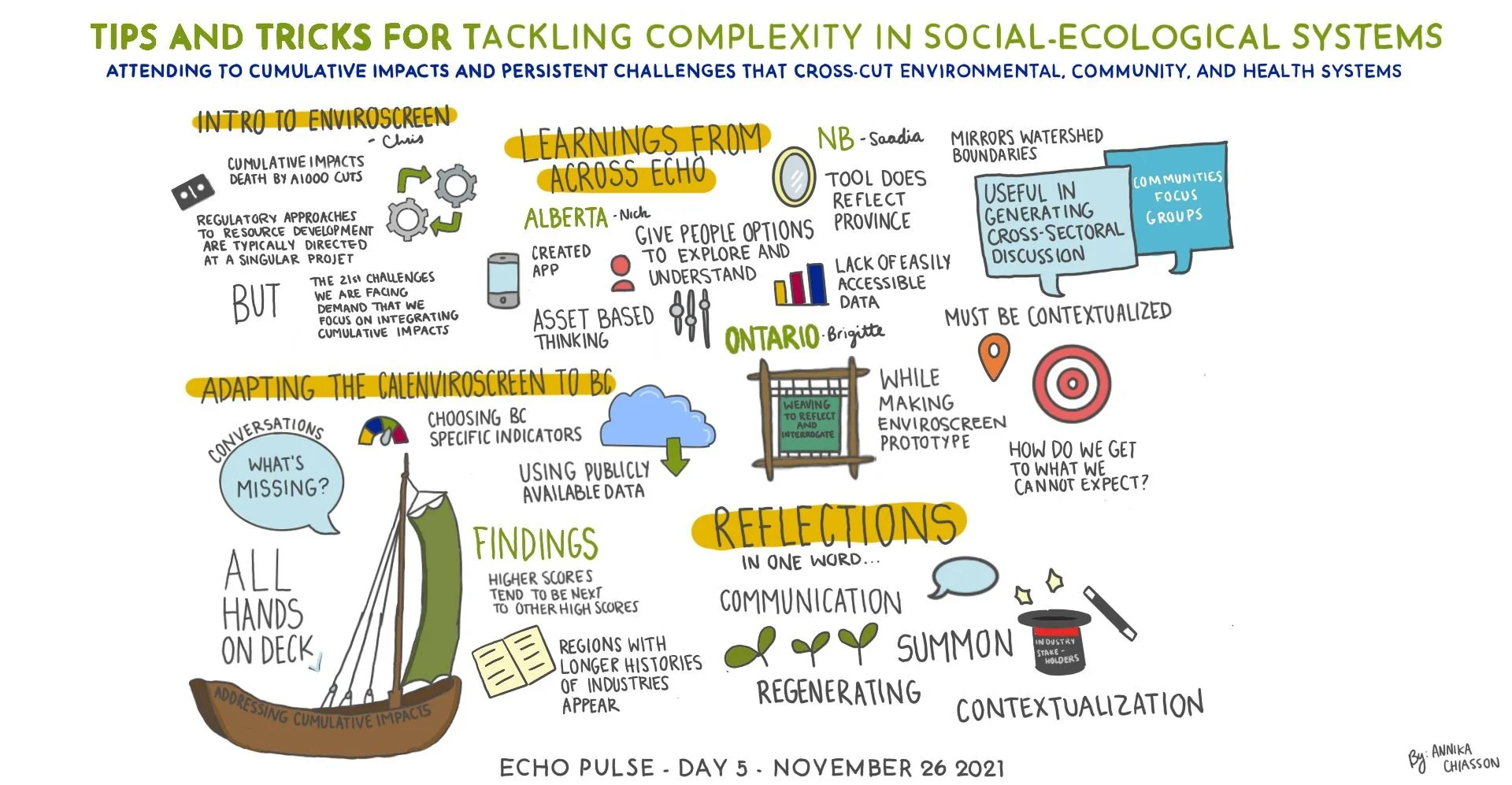ECHO Network pulse 2021
ECHO Network Knowledge Exchange Sessions on “Honouring Complexity: Making Space to Address Cumulative Impacts, Climate Change and Co-Benefits”
Welcome to the ECHO Networks’s 2021 pulse information page! This page is a landing place for information, outputs and resources that come from the ECHO Network’s November 19th - 26th week long seminar event. To learn more about each session, either scroll down or click the squares above to be taken to the chosen section.
Each section will contain a brief description of the session, a copy of the graphic recording crafted by Annika Chiasson, links to the video recordings and chat box, resources, references and an infographic covering the main points and outputs from each session. This page is still under construction, thank you for your patience as we continue to add new information and materials as they are produced.
Healing Indicators
ECHO Network Round Table Panel & Discussion
Resources and links
This Healing Indicators session brought together a panel to discuss emerging research in Indigenous health and wellness in unceded northern BC. The session explored the space between resource development, Impact Assessment and nation-based sovereignty and self-determination over health, as inextricably interconnected with the environment, and ongoing needs for ‘healing indicators’ that reflect these relationships.
The panel led into discussion and reflections from members of the ECHO network to explore these themes in different contexts, ranging from Indigenous-led experiences in Aotearoa/New Zealand, through to health authority experiences in northern BC. The session also created space for discussion among participants about forward thinking work that realizes and promotes Indigenous leadership in the regulation of Health Impact Assessment and other integrative approaches to environment, equity and health.
Learning objectives were two-fold:
To analyze and discuss indicator work being done in support of community and nation driven health and wellness priorities.
To explore health and wellness as a space to amplify Indigenous self-determination and nation-based sovereignty over wellness programming and decision making
Graphic recording
-
To see the video recording of this session please click here!
-
-
Below are links to project partners mentioned throughout the series, journal articles used in the presentations, and other interesting or informing material.
Fox, P., & Crowshoe, E. (2018). Indigenous Health Indicators: A participatory approach to co-designing indicators to monitor and measure First Nations health (pp. 1–36). The Alberta First Nations Information Governance Center. https://www.afnigc.ca/main/includes/media/pdf/digital%20reports/Indigenous%20Health%20Indicators.pdf
Adams, E., Henry, B., & McDonals, S. (2021). First Nations PHWA. Fist Nations Health Authority and the Office of the Provincial Health Officer, 275. https://www.fnha.ca/Documents/FNHA-PHO-First-Nations-Population-Health-and-Wellness-Agenda.pdf
Stelkia, K., et. al., (2021). Letsemot, “Togetherness”: Exploring How Connection to Land, Water, and Territory Influences Health and Wellness with First Nations Knowledge Keepers and Youth in the Fraser Salish Region of British Columbia. International Journal of Indigenous Health, 16(2), Article 2. https://doi.org/10.32799/ijih.v16i2.33206
Gitanyow Hereditary Chiefs. (2021). HA NII TOKXW: OUR FOOD TABLE [Video]. Vimeo. https://vimeo.com/591536533
RAVEN. (2021). Bustin BC’S Dependency on Fossil fuel [Video]. Vimeo. https://raventrust.com/video-busting-bcs-dependency-on-fossil-fuel/
BC Government. (2020). Parliamentary secretary’s statement on Transgender Day of Remembrance. News.Gov.BC. https://news.gov.bc.ca/releases/2020FIN0061-001948
IPCA. (2020). Ethical Space in the Kootenay-Columbia Region. https://130ncw3ap53r1mtmx23gorrc-wpengine.netdna-ssl.com/wp-content/uploads/sites/69/2020/08/y2y.2020.background-ethical-space.pdf
The Treasury. (2021). The Living Standards Framework Dashboard: Our country, Our future and Our people. Living Standards framework. https://www.treasury.govt.nz/information-and-services/nz-economy/higher-living-standards/our-living-standards-framework
Te Aka. (2021). Māori Dictionary Project. https://maoridictionary.co.nz/
Mikisew Cree First Nation v. Canada
Iinnie Initaitve Buffalo Treaty. (2014). https://www.buffalotreaty.com/treaty.
Ermine, W. (2007). The Ethical Space of Engagement. Indigenous LJ, 6(1), 193. https://jps.library.utoronto.ca/index.php/ilj/article/view/27669/20400
ECHO Reflections in Art
Creation of a Digital Story
Resources and Links
ECHO trainees reflected on their experience making a digital story. After screening the Expressions in Art Digital Story, Dr. Sarah de Leeuw critically reflected on the digital story and give insights about ways to critically take up arts-based and narrative methods.
Learning Goals were to:
Learn about trainee team members' increased capacity to leverage digital storytelling
Learn about how arts-based and narrative methods can move beyond the limitations of narrative research methods
Understand that arts-based methods must be taken up carefully and learn tips on taking up these tools with critical reflection.
-
To view the video recording of this session please click here!
-
-
Below are links to project partners mentioned throughout the series, journal articles used in the presentations, and other interesting or informing material.
How-To Video link: https://youtu.be/iRxSfaPzCZo
Link to Digital Story: https://youtu.be/z8WT-jVGMR8
ECHO Comic Jam Activity explanation:
http://healtharts.ca/comic-jams-intersectoral-research-and-responses-to-the-impacts-of-resource-extraction/; https://www.graphicmedicine.org/conference-jam-comic-2/
Gislason, M. K., Morgan, V. S., Mitchell-Foster, K., & Parkes, M. W. (2018). Voices from the landscape: Storytelling as emergent counter-narratives and collective action from northern BC watersheds. Health & Place, 54, 191–199. https://doi.org/10.1016/j.healthplace.2018.08.024
Leeuw, S. de, Parkes, M. W., Morgan, V. S., Christensen, J., Lindsay, N., Mitchell‐Foster, K., & Jozkow, J. R. (2017). Going unscripted: A call to critically engage storytelling methods and methodologies in geography and the medical-health sciences. The Canadian Geographer / Le Géographe Canadien, 61(2), 152–164. https://doi.org/10.1111/cag.12337
Health in Watersheds
Exploring Connections and Data Complexities
Resources and Links
This panel and discussion will profile examples of ‘health in watersheds’ work underway across the ECHO Network, with an emphasis on environment, community and health connections, and the important data and integration challenges that arise when working at the watershed scale. Panelists and discussants will profile experiences across a variety of watershed scales across Canada and Oceania, ranging from continental to coastal marine systems. An interactive discussion will explore new opportunities to amplify integrative approaches to ‘health in watersheds’ especially when combined with commitments to profile Indigenous knowledges, champion equity and foreground ecological perspectives.
At the end of this session, participants will be able to:
Identify and describe strengths and weaknesses of using the watershed scale for understanding environment, community and health connections;
understand more about the ways that human and ecosystem data are collected with different objectives, at different scales and have different privacy constraints;
discuss how working in watersheds can reveal diverse pathways of connection among environment, equity and health, as well as unmask inequities across different contexts;
discuss opportunities for data-informed approaches to health in watersheds, to inform community-driven, and integrative approaches to land, water and health (ranging from Indigenous-led work through to watershed governance and research);
Learn new terms for understanding watershed and catchments from different territories and languages in Canada and Oceania.
-
To see a recording of the session click here!
-
-
Below are links to project partners mentioned throughout the series, journal articles used in the presentations, and other interesting or informing material.
CalEnviroScreen tool: https://oehha.ca.gov/calenviroscreen
Converter tool: https://github.com/mountainMath/tongfen
Ehrenfeld, D. (1978). The arrogance of humanism. New York: Oxford University Press. https://doi.org/10.1080/00139157.1979.9931204
Harris, S. M. (2011). “Yinka Dinii Ha Ba Ten, the Ways of the People of the Earth: A Social-Ecological Framework for Sustainability”. Masters Thesis. UNBC. https://doi.org/10.24124/2011/bpgub1512
Integrated Regional Profile work: https://www2.unbc.ca/cumulative-impacts/tools
The ecological fallacy dilemma: https://www.britannica.com/science/ecological-fallacy
The Fiji case studies: https://www.planetaryhealthalliance.org/case-studies
WISH: https://fiji.wcs.org/Initiatives/Land-Sea-Management/Watershed-Interventions-for-Systems-Health-in-Fiji.aspx
ECHO & You(th)
Youth-centered conversation where youth from across ECHO's regional cases
Resources and links
A youth-centered conversation where youth from across ECHO's regional cases will be sharing their experiences and perspectives from participating in outdoor learning activities out on the land. Youth will describe the activities they have done, and their motivations, aspirations, and drive for engaging in activities at the interface of community, health, and land.
At the end of this session, you will have:
Have met youth from other watersheds around Canada participating in outdoor learning activities
Know why youth feel outdoor learning is important and have heard about what they think is most fun about these activities
Have learned about current youth outdoor learning programs and potential youth engagement in research
-
This session wasn’t recorded live, however, due to a disruption for a group of youth participants moments before their presentation. We did get the chance to connect with this group again and have a recording from this bonus session, click here!
-
-
Below are links to project partners mentioned throughout the series, journal articles used in the presentations, and other interesting or informing material.
Nick Yarmey's Favourite Educational TikToks: https://nicholasyarmey.weebly.com/portfolio/the-best-educational-tiktoks
ECHO TikTok Handle: @echo_ruralab
Nechako White Sturgeon Conservation Center: https://www.nechakowhitesturgeon.org/ ; https://www.facebook.com/NWSRI/
Koh-Learning in our Watersheds:
https://www2.unbc.ca/integrated-watershed-research-group/koh-learning-our-watersheds
SMASH Reference Manual: https://www.geopaparazzi.org/smash/
Brilliant Labs: https://www.brilliantlabs.ca/naturalmakerspace/
EnviroScreen
Tips, Tricks and Tools for Tackling Complexity in Social-Ecological Systems: Attending to Cumulative Impacts and Persistent Challenges that Cross-Cut Environmental, Community and Health Systems
Resources and links
Tips, tricks and tools for tackling complexity in social-ecological systems: Attending to cumulative impacts and persistent challenges that cross-cut environmental, community and health systems
This session will discuss Canadian pilot projects of innovative, integrative, and geospatial cumulative impacts screening tools that merge environmental, community and health data. Two interactive panels and several breakout sessions will provide an opportunity to discuss current and future applications and uses of the tool across the ECHO Network Regional Cases and how it can connect to other intersectional processes for learning and action.
Learning Goals for this session:
Learn about Canadian pilots of innovative, integrative, and geospatial cumulative impacts screening tools that merge environmental, community and health data
Discuss future applications and uses of the tool and how it can connect to other intersectional processes for learning and action
Understand how to engender integrative actions to promote sustainability in the face of complexity and uncertainty
-
-
-
Below are links to project partners mentioned throughout the series, journal articles used in the presentations, and other interesting or informing material.
CalEnviroScreen tool: https://oehha.ca.gov/calenviroscreen
